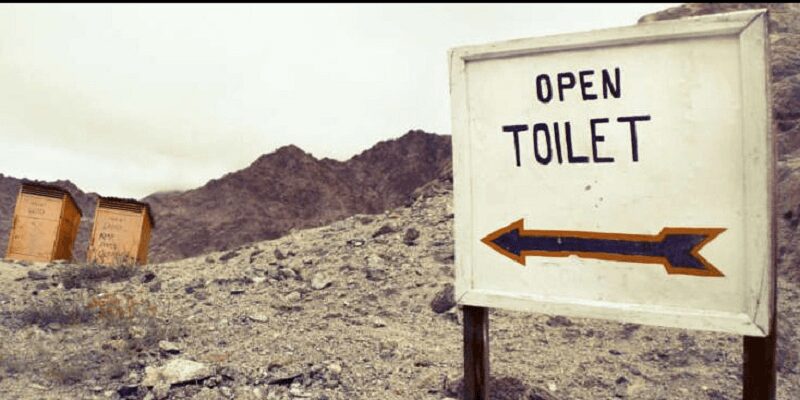For many of us, toilets are ordinary everyday items that we take for granted.
Toilets are essential for clean, and healthy communities and contribute to the social as well as economic development in Nigeria.
Advertisement
It is important to note that, the use of toilet is crucial to saving the lives of thousands of children from diseases globally.
For women and adolescent girls, sanitation is important for their health, safety and dignity. Also, for these set of people, toilets provide a space to manage their menstrual hygiene, and are important measure in lowering the risk of harassment when defecating in the open around dusk and dawn.
Open defecation in fields, railway tracks, garbage dumps, parks and roadside ditches is incredibly dangerous, as exposure to human waste causes diarrhoea and other diseases that can be deadly, especially for children.
Health experts say, diarrhoea and other sanitation related diseases can prevent children from being able to absorb the nutrients in their food, leading to under nutrition.
Advertisement
For this, the United Nations recognised World Toilet Day, in 2013 and it was estimated that 2.4 billion people globally had no access to improved sanitation facilities. Of them, 946 million defecate in the open.
In Nigeria, about 47 million people are still practising open defecation according to the United Nations Children’s Fund, UNICEF, Water, Sanitation and Hygiene,, WASH Specialist, Mr Bioye Ogunjobi.
Ogunjobi said the situation must be addressed to limit resources spent on payment of medical bills.
He said the campaign “Clean Nigeria: Use the Toilet,” is geared towards urging Nigerians to cultivate the habit of using toilets and desist from practising open defecations.
However, experts say, ending open defecation is not just about access to toilets, it’s about generating demand for toilets and getting everyone to use them every single day. It is an age old practice that is seen as ‘normal’ in many communities.
Advertisement
The Intervention
UNICEF said it has recorded breakthrough in the effort to eliminate the practice of open defecation through Community Led Total Sanitation, CLTS, in 11 Local Government Areas in the country.
Announcing this at a media dialogue in Kano, UNICEF WASH specialist said that UNICEF has supported the Ministry of Water Resources to ensure access to hygiene and sanitation in 11 out of 774 local government areas in various states across Nigeria.
The 11 LGAs which are now Open Defecation Free Ogunjobi said are; Daas, Warji in Bauchi State; Birnin Kudu and Buji in Jigawa State; Ikom, Yala, Obanliku, Yakurr, Boki and Bekwara in Cross River State and Logo in Benue State.
According to him, “we were able to achieve this by supporting the Federal Ministry to implement what we call Community Led Total Sanitation.”
He explained that the CLTS is an approach which helps members of various communities realise the dangers of Open Defecation and take collective decision to stop the act.
Advertisement
The WASH specialist observed that these community members take a collective action to build and use toilets.
Ogunjobi further noted that Nigeria needs increased investment from the government for sanitation.
According to him, a set of priorities which include; taking WASH to disadvantaged communities in the rural areas, improving access to safe water and sanitation in schools and health care facilities as well as hygiene promotion and advocacy remain optimum priority.
He said “these 11 LGAs in number are likely to increase by two more in Jigawa within the next one month.”
Ogunjobi said, the Open Defecation Free Nigeria has happened in a total number of 11 LGAs in Nigeria, stressing that, it is a drop in the ocean as there are still 764 LGAs left.
He noted that through the efforts of UNICEF no fewer than 1.7 million Nigerians have gained access to improved water facilities while 2.2 million people have access to improved toilets.
The WASH specialist further noted that no fewer than 1,227 schools and 599 Primary Healthcare Centres have been equipped with WASH services.
He said, 3,908 communities were supported to become certified ODF through community approaches and 2.4 million people have benefitted from UNICEF’s hygiene promotion improvement distribution supplies.
Ogunjobi noted that presently, the organisation was providing WASH services in rural communities, schools and health care facilities as well as supporting the open defecation campaign plan led by the government.
“UNICEF is supporting sanitation demand creation through community approaches, sanitation marketing and financing and hygiene promotion strategies.
“It is also strengthening the WASH sector policy and institutional environment at the national and sub-national levels for better WASH governance and service delivery,” Ogunjobi said.



